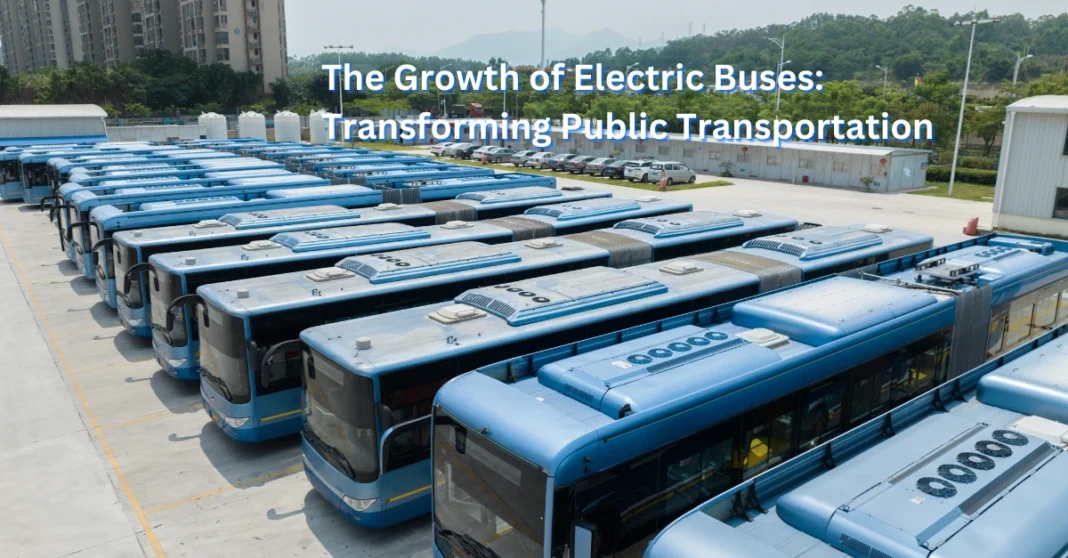As cities worldwide grapple with issues such as air pollution, traffic congestion, and the need for sustainable mobility solutions, electric buses are emerging as a transformative force in public transportation. With their potential to reduce emissions, lower operating costs, and improve the overall passenger experience, electric buses are reshaping urban transit systems. This article explores the growth of electric buses, the benefits they bring to public transportation, and the challenges that lie ahead.
The Rise of Electric Buses
The adoption of electric buses has gained significant momentum over the past few years, fueled by advancements in battery technology, supportive government policies, and increasing public awareness of environmental issues. According to recent data, the global electric bus market is projected to grow substantially, with many cities committing to electrify their fleets in the coming decades. Leading manufacturers, such as BYD, Proterra, and New Flyer, are expanding their offerings to meet the rising demand for electric buses.
Government initiatives are a major driving force behind this growth. Many countries have implemented policies aimed at reducing greenhouse gas emissions and improving air quality, often setting ambitious targets for the electrification of public transit. For example, several cities have pledged to transition to 100% electric bus fleets by 2030 or 2040, reflecting a broader commitment to sustainable urban mobility.
Benefits of Electric Buses
- Environmental Impact: Electric buses produce zero tailpipe emissions, significantly reducing air pollutants such as nitrogen oxides (NOx) and particulate matter (PM). This is especially beneficial in densely populated urban areas, where poor air quality can have serious health implications for residents.
- Cost Efficiency: While the initial purchase price of electric buses may be higher than that of conventional diesel buses, the total cost of ownership tends to be lower over time. Electric buses require less maintenance due to fewer moving parts, and the cost of electricity is often lower than diesel fuel, resulting in substantial savings for transit agencies.
- Enhanced Passenger Experience: Electric buses are generally quieter and provide a smoother ride compared to traditional buses. This enhanced comfort can encourage more people to use public transportation, thereby reducing traffic congestion and promoting a shift toward more sustainable travel options.
- Energy Independence: By utilizing locally sourced renewable energy for charging, cities can reduce their reliance on fossil fuels. This not only supports energy security but also aligns with broader sustainability goals.
Challenges Ahead
Despite the numerous advantages, the widespread adoption of electric buses faces several challenges. One significant hurdle is the need for robust charging infrastructure. Transit agencies must invest in establishing a comprehensive network of charging stations to support electric bus operations, particularly for long routes or fleets with multiple vehicles.
Another challenge is the upfront capital required for fleet transition. While operational costs may be lower in the long run, the initial investment in electric buses and charging infrastructure can be a barrier for many transit agencies, especially those with limited budgets. Government incentives and funding programs can help alleviate some of this financial pressure.
Additionally, range anxiety—the concern that electric buses may not have sufficient battery capacity for long routes—remains a consideration. Ongoing advancements in battery technology and the development of fast-charging solutions are addressing this issue, making electric buses more viable for a wider range of applications.
Conclusion
The growth of electric buses represents a significant step toward transforming public transportation and creating more sustainable urban environments. With their potential to reduce emissions, lower operating costs, and enhance the passenger experience, electric buses are well-positioned to play a pivotal role in the future of public transit. As cities continue to invest in electrification and overcome existing challenges, the shift toward electric buses will contribute to cleaner air, improved public health, and a more efficient transportation system for all.
Key Takeaways:
- Environmental Benefits: Electric buses significantly reduce air pollution and greenhouse gas emissions.
- Cost Savings: Lower maintenance and fuel costs make electric buses financially attractive in the long term.
- Improved Passenger Experience: Quieter, smoother rides can enhance public transportation appeal.
- Infrastructure Development: Investment in charging stations is essential for supporting electric bus operations.
As the momentum for electric buses continues to grow, they will play an essential role in shaping the future of public transportation and contributing to sustainable urban mobility solutions.

